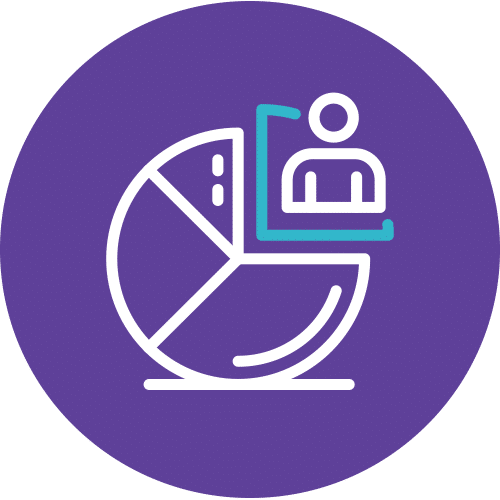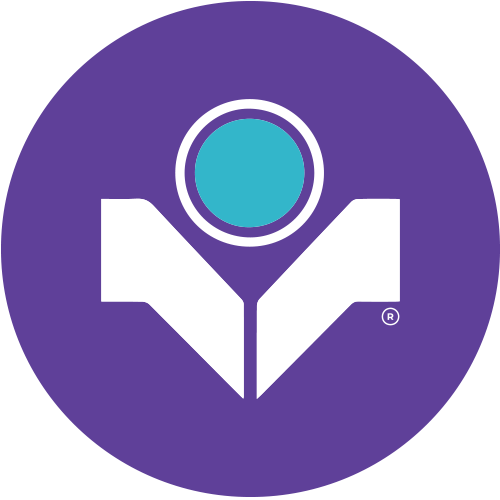Unleash Your Potential with Our Business Analyst Course
Are you looking to take your career to the next level as a business analyst? Look no further! Our Business Analyst Course is your gateway to unlocking new opportunities and enhancing your skills in the dynamic world of business analysis.
What You'll Gain
Our comprehensive Business Analyst Course, tailored for those aiming to achieve the Certification of Capability in Business Analysis (CCBA), is a 3-day instructor-led program. It’s designed for individuals who already have a foundational understanding of business analysis and are ready to take their expertise to the next level.
The Journey to Success
In this highly interactive course, you’ll delve into the core concepts of business analysis, learn how to create and manage requirements effectively, and understand the key techniques and competencies that will set you apart in your career. We will also explore the vital role of a business analyst in Agile environments, giving you a well-rounded skill set to excel in today’s business landscape.
With this course, you can confidently tackle the CCBA exam, armed with the knowledge, techniques, and strategies you need to succeed. We’ve designed this training to not only help you pass the certification but also to excel in your career as a proficient and confident business analyst.
So, if you’re ready to embark on this exciting journey towards becoming a certified business analyst, our course is the key to your success. Join us, and let’s unlock your full potential in the world of business analysis. Your future begins here!
Course Details
Course Code: CCBA; Duration: 3 days; Instructor-led
Audience
Anyone who wishes to go for CCBA after ECBA.
Prerequisites
Advisable to go for ECBA course first.
Methodology
This course is highly interactive and uses diverse teaching methods (lectures, self-assessments, group discussions, activities, and videos) to accommodate different learning styles This training will also leverage on participant’s personal life and work experiences.
Course Objectives
- Understand business analysis, responsibilities, competencies, artifacts of BA.
- Remember the structure of BABOK.
- The instructor will explain BA Core Concept Models, requirement classification and Stakeholders.
- Recommends Action for selecting the business analysis approach.
- Recommends Action for determining the appropriate level of formality that is required for the business analysis approach.
- Recommends Action for identifying the required business analysis activities.
- Recommends Action for considering the timing of business analysis work within the context of the overall change.
- Applied Knowledge of assessing the complexity and size of the change and the overall risk factors for the change.
- Applied Knowledge of ensuring key stakeholders understand and agree to the business analysis approach.
- Applied Knowledge of performing stakeholder analysis.
- Applied Knowledge of defining the level of stakeholder collaboration that will be required to support the change.
- Applied Knowledge in identifying appropriate stakeholder communication needs.
- Applied Knowledge in identifying an effective decision-making process.
- Applied Knowledge of developing an effective change control process for requirements and designs.
- Applied Knowledge of planning effective prioritization process for requirements and designs.
- Recommends Action for planning an effective approval process for the deliverables that will be produced.
- Applied Knowledge of determining how business analysis information will be organized.
- Applied Knowledge of determining the appropriate level of abstraction for business analysis information.
- Applied Knowledge of planning the traceability approach.
- Applied Knowledge of planning for requirements reuse.
- Applied Knowledge of determining how business analysis information will be stored and accessed.
- Applied Knowledge in identifying what attributes will be used for ongoing management of requirements and designs.
- Recommends Action to report on business analysis performance.
- Applied Knowledge in identifying analysis performance measures that can be used.
- Applied Knowledge of assessing business analysis performance measures.
- Applied Knowledge of recommending improvements to business analysis performance.
- “Modifies Rules for the scope of the elicitation effort.
- Modifies Rules selecting appropriate elicitation techniques.
- Modifies Rules for setting up logistics for elicitation activities.
- Modifies Rules for preparing supporting elicitation materials.
- Recommends Action on preparing stakeholders to ensure elicitation activities will run smoothly.”
- “Modifies Rules guiding the elicitation activity.
- Modifies Rules to capture the outcomes of the elicitation activity.”
- Students should be able to prepare for a elicitation session by preparing a list of questions to be asked to client
- Students should be able to understand challenges in Elicitation and appropriate measures taken for the same.
- Students should be able to understand best practices in the industry.
- Students should be able to apply their knowledge of requirements and create a BR.
- Students should be able to apply their knowledge of requirements and convert business requirements to functional.
- Recommends Action on comparing elicitation results against source information.
- Recommends Action on comparing elicitation results against other elicitation results.”
- Recommends Action on determining objectives and format of communication.
- Recommends Action for communicating the appropriate level of detail so stakeholders can understand the information.
- Applied Knowledge of gaining agreement for required stakeholder commitments.
- Applied Knowledge of monitoring stakeholder engagement.
- Applied Knowledge of demonstrating collaborative relationships with key stakeholders.”
- Recommends Action for modelling requirements and designs.
- Recommends Action for analyzing requirements and designs.
- Recommends Action for identifying key information for requirements and designs, and their attributes.
- Recommends Action for developing the appropriate level of abstraction to meet various needs.”
- Recommends Action for applying the characteristics of requirements and designs quality.
- Recommends Action for performing verification activities throughout the work.
- Recommends Action for using appropriate checklists for quality control.”
- Applied Knowledge in identifying assumptions and utilize them to manage risks.
- Applied Knowledge of defining measurable evaluation criteria to assess the success of the change.
- Applied Knowledge of evaluating alignment with solution scope to support value delivery.”
- Applied Knowledge of making effective use of requirement viewpoints and views.
- Applied Knowledge of leveraging templates to develop the solution architecture.
- Recommends Action for ensuring the set of requirements is complete.
- Recommends Action for ensuring requirements relate to each other by identifying requirements relationships.
- Recommends Action for defining the business analysis information architecture.
- Recommends Action for identifying appropriate solution approaches.
- Recommends Action for identifying improvement opportunities.
- Recommends Action for allocating requirements to solution components and releases to best achieve change objectives.
- Recommends Action for developing design options aligned with the desired future state.”
- Recommends Action for identifying the benefits that a potential solution is expected to deliver.
- Recommends Action for identifying the costs associated with a potential solution.
- Recommends Action for determining the value of a solution to key stakeholders.
- Recommends Action for assessing design options and recommends the appropriate solution.”
- The instructor will explain SCRUM and role of BA in SCRUM, he will also teach how to write user stories. This will equip a BA with necessary skills required to work in an Agile environment.
- Applied Knowledge of considering value and relationships while tracing requirements.
- Applied Knowledge of identifying the relationships to track to effectively manage traceability.
- Applied Knowledge of determining an appropriate traceability repository to be used.”
- Applied Knowledge of determining how best to maintain requirement and design information.
- Applied Knowledge of determining how best to manage attributes.
- Applied Knowledge of managing requirements that can be reused, longer term.”””
- Recommends Action for determining the appropriate basis on which requirements will be prioritized.
- Applied Knowledge of guiding stakeholders through the challenges of prioritization.
- Applied Knowledge of prioritizing as new information becomes available.”
- Applied Knowledge of assessing the formality of the assessment process.
- Applied Knowledge of completing impact analysis activities, as needed.
- Applied Knowledge to guiding impact resolution activities.
- Applied Knowledge of stakeholder roles and authority levels.
- Applied Knowledge of managing conflicts and resolving issues.
- Applied Knowledge of using appropriate methods to gain consensus about key business analysis information.
- Recommends Action for tracking and communicating approval decisions.”
- Recommends Action for defining business needs.
- Recommends Action for the organizational structure and culture.
- Applied Knowledge of the organizational capabilities and processes.
- Applied Knowledge of the technology and infrastructure utilized by the organization.
- Applied Knowledge of organizational policies and business rules.
- Applied Knowledge of the organization’s business architecture.
- Applied Knowledge of the organization’s internal assets.
- Applied Knowledge of external influencers.
- Applied Knowledge of articulating business goals and objectives.
- Recommends Action for determining the solution scope.
- Recommends Action for identifying constraints.
- Applied Knowledge in identifying potential changes to organizational structure and culture required to support the desired change.
- Applied Knowledge in identifying new capabilities and business processes that will be required to support the change.
- Applied Knowledge in identifying new technology and infrastructure that will be required to support the change.
- Applied Knowledge in identifying new organizational policies and business rules.
- Applied Knowledge of ensuring business architecture is respected.
- Applied Knowledge of assessing resource alignment for future state and transition to future state.
- Applied Knowledge in identifying assumptions related to the future state.
- Applied Knowledge of evaluating the potential value for the future state.
- Applied Knowledge in identifying unknowns.
- Applied Knowledge in identifying and manage constraints, assumptions, and dependencies.
- Applied Knowledge of quantifying the impact of risk factors.
- Applied Knowledge of assessing stakeholder and organizational risk tolerances.
- Applied Knowledge of recommending an effective course of action based on risk assessment.”
- Recommends Action for identifying the appropriate solution scope after evaluating multiple solution scope options.
- Applied Knowledge of performing gap analysis to understand missing capabilities.
- Applied Knowledge of completing the enterprise readiness assessment.
- Applied Knowledge of developing an effective change strategy.
- Applied Knowledge of developing appropriate transition states and completes release plans.”
- Applied Knowledge in identifying the appropriate measures to use to assess solution performance.
- Applied Knowledge of validating the performance measures selected with key stakeholders.
- Applied Knowledge of collecting appropriate performance measures that can be used to assess solution performance.
- Applied Knowledge of examining the performance measures collected to assess solution performance against the desired value.
- Applied Knowledge of highlighting risks identified through assessing the performance measures.
- Applied Knowledge of assessing performance measures to identify relevant trends.
- Applied Knowledge of testing and analyzing performance measures to ensure their accuracy.
- Applied Knowledge of identifying performance variances, their root cause, and recommending appropriate actions to reduce variance.
- Applied Knowledge of identifying internal solution component dependencies.
- Applied Knowledge of performing problem analysis to identify the source of solution limitations.
- Applied Knowledge of performing impact assessment activities to quantify factors that affect solution performance.
- Applied Knowledge of assessing enterprise culture.
- Applied Knowledge of completing stakeholder impact analysis.
- Applied Knowledge of assessing how a solution impacts the organizational structure.
- Applied Knowledge of performing operational assessment.
- Applied Knowledge of ensuring appropriate solution performance measures are being used.
- Applied Knowledge of providing substantiated recommendations.
- Basic Knowledge of Agile, Business Intelligence and how BA works in these areas.
- Knowledge on how, when, and where to use the techniques prescribed in BABOK.
- Apply and use some of the techniques in Interview, process flow, prototypes, brainstorming to ensure retention of knowledge.”
- Applied knowledge of all the skills.
Outlines
Module 1: CCBA Exam Information
- About IIBA
- Benefits of CCBA certification
- Eligibility
- Exam Blueprint & Exam pattern
- Exam fees
- Application process
- How to prepare for exam?
- Course Details
Module 2: Introduction to Business Analysis
- What is Business Analysis?
- Who is a Business Analyst?
- Responsibilities of a BA
- Competencies of a BA
- Artifacts prepared by a BA.
- BA Career Paths
Module 3: Introduction to BABOK V3
- BABOK Structure
- Knowledge areas
- Tasks
- Elements/Guidelines
- Techniques
- How to read BABOK?
Module 4: Business Analysis Key Concepts
- Business Analysis Core Concept Model
- Key Terms
- What are requirements?
- Requirement Classification
- Stakeholders revision
- Requirements and Design
- Case Study of a Retail Customer
Module 5: KA1 - Business Analysis Planning & Monitoring
- Overview
- Core Concept Model in BAPM
- Plan Business Analysis Approach
- Plan Stakeholder Engagement
- Plan Business Analysis Governance
- Plan Business Analysis Information Management
- Identify Business Analysis Performance Improvements
- Case Study of a Retail Customer
- Chapter Quiz
Module 6: KA2 - Elicitation and Collaboration
- Overview of Elicitation and Collaboration
- Core Concept Model in Elicitation and Collaboration
- Prepare of Elicitation.
- Case Study
- Conduct Elicitation
- Elicitation Techniques
- Challenges in Elicitation
- Best Practices
- Preparing a Business Requirement Document
- Preparing a Functional Specification Document
- Confirm Elicitation Results
- Communicate Business Analysis Information
- Manage Stakeholder Collaboration
- Chapter Quiz
Module 7: KA3 -Requirement Analysis and Design Definition
- Overview
- Core Concept Model
- Specify & Model Requirements
- Verify requirements.
- Validate Requirements
- Define Requirements Architecture
- Define Design Option
- Analyze Potential Value and Recommend Solution
- Process Flow diagrams
- Activity Diagrams
- Use Case Diagrams
- Prototypes
- Chapter Quiz
Module 8: Requirements in Agile
- What is Agile?
- SCRUM Methodology
- SCRUM Roles and Events
- BA Role in SCRUM
- Artifacts prepared.
- Introduction to Epics/User Stories
- Writing a user story
- Chapter Quiz
Module 9: KA -4 Requirements Life Cycle
- Overview
- Core Concept Model in Requirement Life Cycle Management
- Trace Requirements
- Creating a Traceability Matrix
- Maintain Requirements
- Prioritise Requirements
- MOSCOW technique
- Assess Requirement Changes
- Approve Requirements
- Walkthrough example
- Chapter Quiz
Module 10: KA - 5 Strategy Analysis
- Overview
- Core Concept Model in SA
- Analyze Current State
- Case Study of Automobile Industry
- Define Future State
- Creating As-is and To-be Process Flow diagrams
- Assess Risks
- Define Change Strategy
- Chapter Quiz
Module 11: KA- 6 Solution Evaluation
- Overview
- Core Concept Model in SA
- Measure Solution Performance
- Analyze Performance Measures
- Assess Solution Limitations
- Assess Enterprise Limitations
- Recommend Actions to Increase Solution Value
- Case Study of a Solution Evaluation exercise done in a banking project.
- Chapter Quiz
Module 12: Perspectives
- Agile
- Business Intelligence
- Information Technology
- Business Architecture
- Business Process Management
Module 13: Techniques
- Acceptance and Evaluation Criteria
- Backlog Management
- Balanced Scorecard
- Benchmarking and Market Analysis
- Brainstorming
- Business Capability Analysis
- Business Cases
- Business Model Canvas
- Business Rules Analysis
- Collaborative Games
- Concept Modelling
- Data Dictionary
- Data Flow Diagrams
- Data Mining
- Data Modelling
- Decision Analysis
- Decision Modelling
- Document Analysis
- Estimation
- Financial Analysis
- Focus Groups
- Functional Decomposition
- Glossary
- Interface Analysis
- Interviews
- Item Tracking
- Lessons Learned
- Metrics and Key Performance Indicators
- Mind Mapping
- Non-Functional Requirement Analysis
- Observation
- Organizational Modelling
- Prioritization
- Process Analysis
- Process Modelling
- Prototyping
- Reviews
- Risk Analysis and Management
- Roles and Permissions Matrix
- Root Cause Analysis
- Scope Modelling
- Sequence Diagrams
- Stakeholder List, Map or Personas
- State Modelling
- Survey or Questionnaire
- SWOT Analysis
- Use Cases and Scenarios
- User Stories
- Vendor Assessment
- Workshops
- Chapter Quiz
Module 14: Underlying Competencies
- Analytical Thinking and Problem Solving
- Behavioral Charateristics
- Business Knowledge
- Communication Skills
- Interaction Skills
- Tools and Technology










